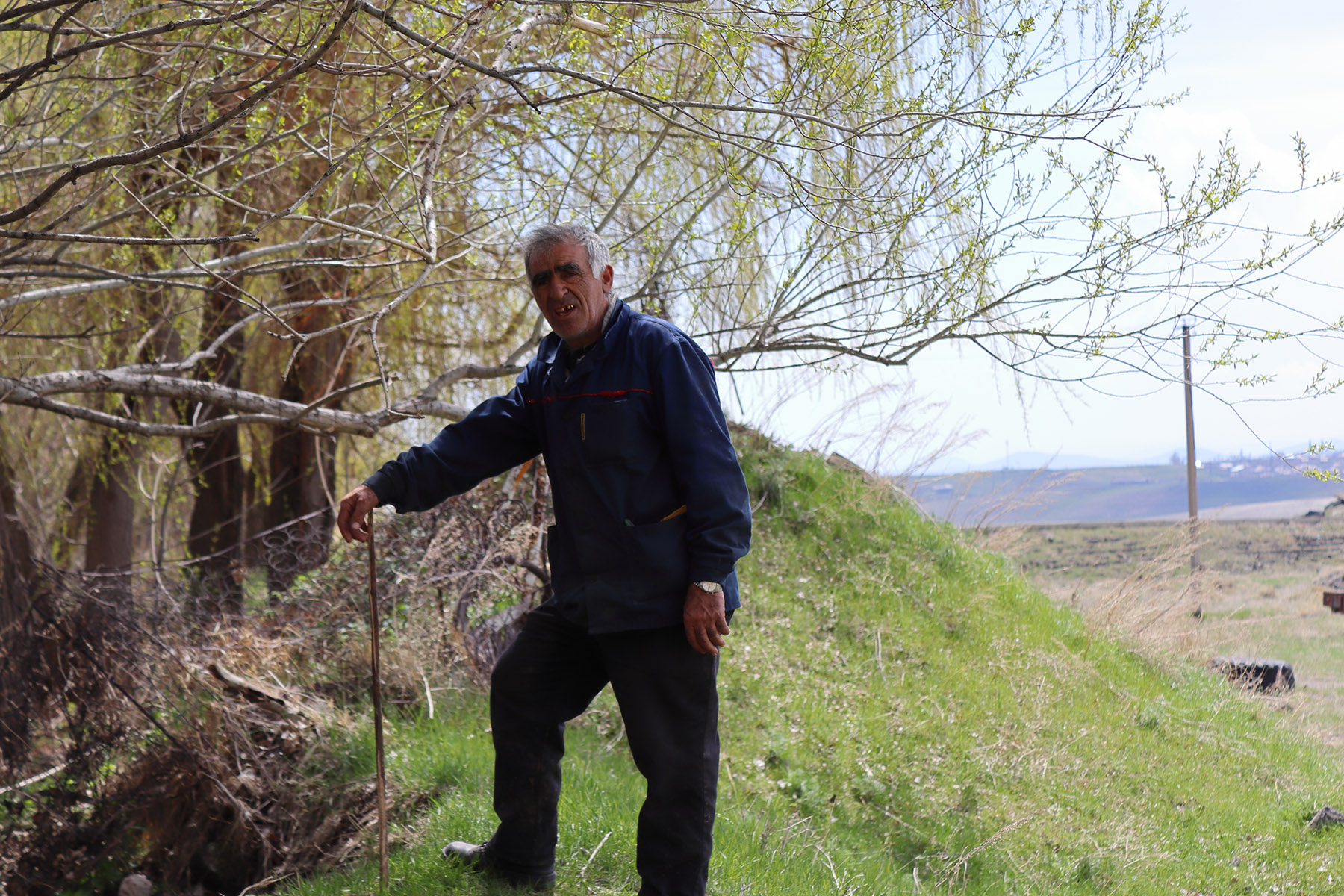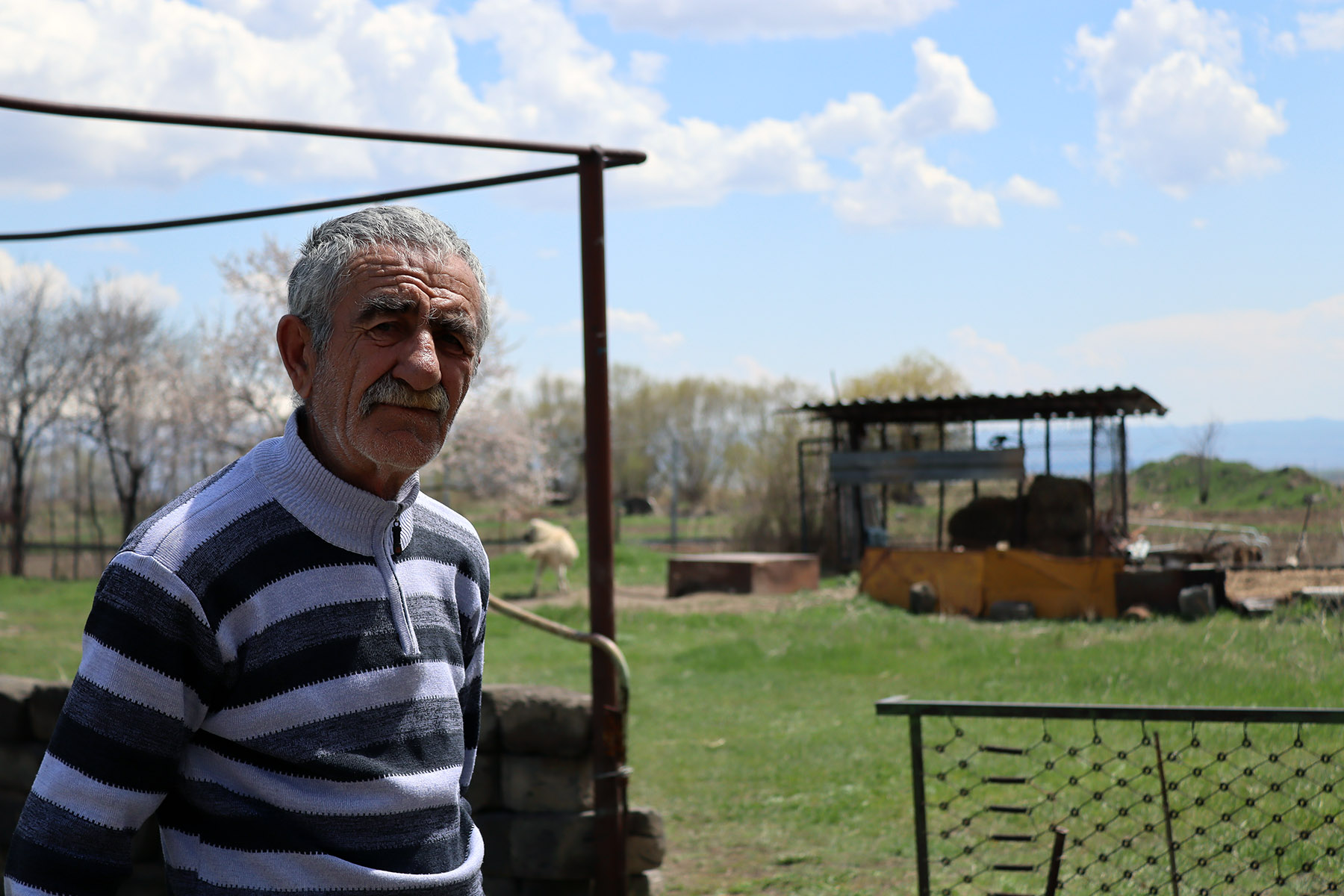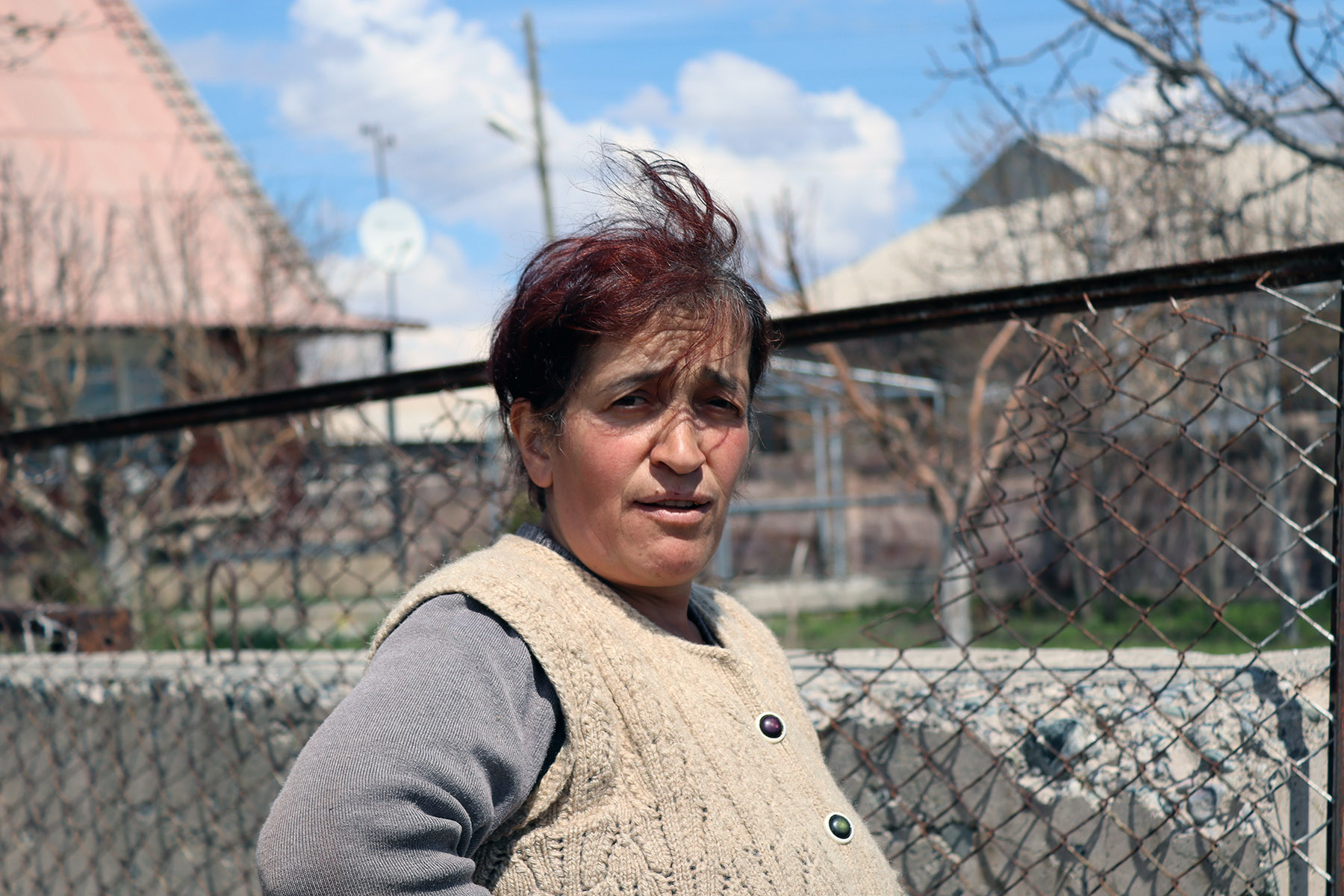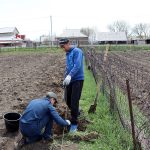
The usual rhythm of life in the villages of Armenia was to go abroad to earn money in the spring and return in the winter. Because of the COVID-19 pandemic, people are now forced to stay on their own land, turning to agriculture to survive.
‘For 20 years I have been travelling abroad to work, but this year I didn’t go; we were left without work because the borders are closed’, Hamlet Grigoryan, a resident of the village of Vahramaberd in north-western Armenia, told OC Media.
Almost every family in Vahramaberd has at least one member who goes abroad every year to earn money. The village is far from unique.
Last year, 210,000 Armenian citizens went to Russia looking for work, 80% of all of Armenia’s seasonal emigrants. Thousands of others went to the European Union or the United States.
These workers also had a significant impact on Armenia’s economy, as roughly one-fifth of Armenia’s GDP is composed of remittances from abroad.
But now all of them are stuck in Armenia, and as the COVID-19 virus continues to ravage the country, they have little idea of when they will leave.

‘Now we don’t know what will happen to us, the only means of subsistence is these cows’, Grigoryan said, adding that it is impossible to support his whole family by selling dairy products alone.
Impacting the most vulnerable
‘We can say with confidence that most [migrant workers] have not left this year’, Tatevik Bezhanyan, an expert on migration programmes at the Armenian Caritas charitable organisation, told OC Media. ‘This will be a big burden for the state — unemployment and the social and economic situation is expected to worsen.’
According to the Central Bank of Armenia (CBA), more than $1.5 billion is transferred annually from abroad to Armenia through Armenian commercial banks.
Artak Markosyan, head of the Demography Department at the Ministry of Labour and Social Affairs, told OC Media that migrant workers’ contribution to the economy was much larger than the official statistics show, since most of them, also return home with cash that is not reflected in the CBA’s official reports.
Garib Harutyunyan, a lecturer at the Gyumri branch of the Armenian State University of Economics, told OC Media that the sharp fall in remittances will have its worst impacts on Armenia’s most vulnerable populations.
‘The people working abroad are primarily from those social strata who are close to the poverty line or a little richer’, he said.
[Read more about labour migration: Armenia’s seasonal children]
Agriculture and construction
The Armenian government has sought to help unemployed seasonal migrant workers by providing them with work on construction projects. Harutyunyan has praised this step, though he also noted that it cannot address the full scope of the problem.
‘The expected volume of construction in Armenia is not comparable with the colossal scale of Russia, but this is an opportunity and can also help the unemployed’, he said.
Armenian Prime Minister Nikol Pashinyan also proposed assistance to rural residents through agricultural loans at zero per cent interest.
According to 42-year-old Vahramaberd resident Sevak Kharatyan, even with zero-interest loans, working in agriculture is a massive challenge.
‘It’s possible, but not for everyone. I have a homestead, we can always sow fields, we can create means of subsistence. But it is not enough to ensure a future for the children’, he told OC Media.
Expensive seeds, difficulty in marketing produce, and a high incidence of crop-destroying hail have made agriculture a poor prospect for staying out of poverty, he said.
In recent years, the annual damage to agriculture from drought, hail, floods, spring frosts, and landslides in Armenia has been estimated at ֏15 billion–֏30 billion ($30 million–$60 million).
Despite the difficulties, Kharatyan, who had previously worked in Italy for nine years, said that he prefers working in Armenia to work abroad.
‘If there is work in Armenia, then why should we leave?’, he said. ‘A man is strong in his land, in a foreign land is not like that, even in Italy or America, everyone will feel good in their homeland’.

Tatevik Bezhanyan told OC Media that the fact that workers who could not leave Armenia this year own some land does not mean that they can make an adequate living.
‘People cannot sell crops, they sell cabbage they grow at ֏10 ($0.02) per kilogramme’, she said. ‘The mere fact that people did not go to work and stayed in the country is not enough for the land to be cultivated. There is a question of technology, seeds, fertilisers, and irrigation.’
Meanwhile, some villagers, instead of growing vegetables and fruits, try to concentrate on dairy production.
Mariam Abrahamyan from the village of Marmashen told OC Media that she and her husband had already cultivated their land and are now about to graze cattle. She says that now many residents of her village are doing this.

She said that if there is a shortage of money in the village, they will try to barter with butter, cheese, and milk until the situation normalises.
‘The coronavirus taught us many lessons. The rich man realised that he is a man equal to the poor, the virus does not choose anyone. I was not frugal before, but now I have to be frugal. Stores are closed, there is no money, and even one spoon matters’, Abrahamyan said.








